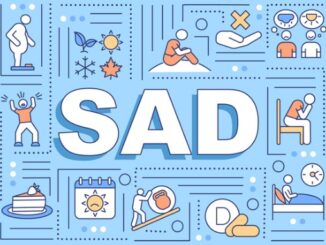Ready to face the new year head on, SBL Sue Birchall is already back in the swing of things. In this article, she talks about banishing the winter blues, managing personal wellbeing and accepting limitations for a happier work life
Wow, 2024 already! By the time you read this, we will already be over a month in! Seems like only five minutes ago I was writing last year’s piece outlining my intention not to have New Year’s resolutions! They do say the years go quickly as you get older…….
If, like me, you were lucky enough to have a nice long break over the festive period, you will hopefully have come back to school at least initially all guns blazing and ready for whatever comes your way. Even without New Year resolutions, most of us have aims and ambitions, and the start of a new year tends to encourage this state of mind. The SBP is by its very nature an optimistic beast, how would we do our jobs well if we weren’t?
Saying that, faced with the bleakness of the weather (at the time of writing this we have had a truly wet winter so far), going to work and coming home in the dark and often the financial aftermath of the festive season these aspirations (and I use that word deliberately) are often left by the wayside. Many of us have year end and new budget setting looming on the horizon and faced as we are with often unforeseeable budget constraints life can lose some of its lustre.
So how do we combat this, how do we turn our frown upside down?
This is where I qualify why I used the word aspirations. Often, we set ourselves impossible goals and expectations which, whilst they appear attainable when setting them, can often become less achievable through pressures often out of our control. A good example of this is when target setting in the appraisal process, we sit and look at the year gone by and try to set goals that meet both our own, our line managers and the school setting aims for the next year. These then become expectations, written down as targets and progress measured throughout the year ready for the next cycle.
As soon as something becomes an expectation pressure is applied because there is a definite outcome required within a specific time frame. An expectation can be perceived as a failure if not reached, how demoralising is that? Now an aspiration, that is something quite different. It encourages you to aspire to a goal but is also about the journey. It allows you to make stops on the way, reflect, maybe change position or even the end goal but you are always reaching forward and achieving something. This would have a much more positive impact on wellbeing.
As School Business Professionals we are also not good at looking after our wellbeing. How often have you advised others to take a break during the day and then reach the end of your day having not achieved this for yourself? Or advised on work practises and strategies to relieve stress only to find that you are not doing that yourself. This is often down to work pressures, time constraints and my favourite, immediacy of need. But there are ways that we can address this even within the restrictions above.
Taking time out, especially in a very stressful situation or day is vital to help you to maintain your equilibrium. I find the best way to do this is to absent myself to somewhere where I might perhaps not be expected to be. Learning to justify this and lose the guilt isn’t the easiest thing to do but all of the best things in life are hard-earned. I often come back refreshed and with a different perspective on the current issue or day.
As a coach, I advocate the ‘deep breath’ technique to staff that I am working with. As a strategy, the very act of ‘taking a breath’ offers the opportunity to regulate response. This works well in almost all situations and helps to lower the stress hormone and of course, possibly react in a more productive way saving angst further on.
One of the hardest for our profession as we tend to find it hard to not be involved in everything, is to understand and accept your limitations. These can be present not only because we are human but also through the influences and restraints impacted by things out of our control. Limits are often created by others, and it can be hard to accept that this may interfere with our plans and aims. It is important to accept when this happens, but it is healthy to take a ‘step back and hands up’ approach in these situations. How much happier will we all be if we can share the responsibilities?
Easier said than done I hear you cry!
But aren’t you worth it? Using your skills as influencers, negotiators, change advocates and general all-rounders for yourselves is surely a possibility. Considering your role and yourself in some of the decisions you make around working practises, efficiencies and other changes that you make might help you to enjoy the fantastic profession that we are part of just a little bit more. After all, we work to live, not the other way round.




Be the first to comment